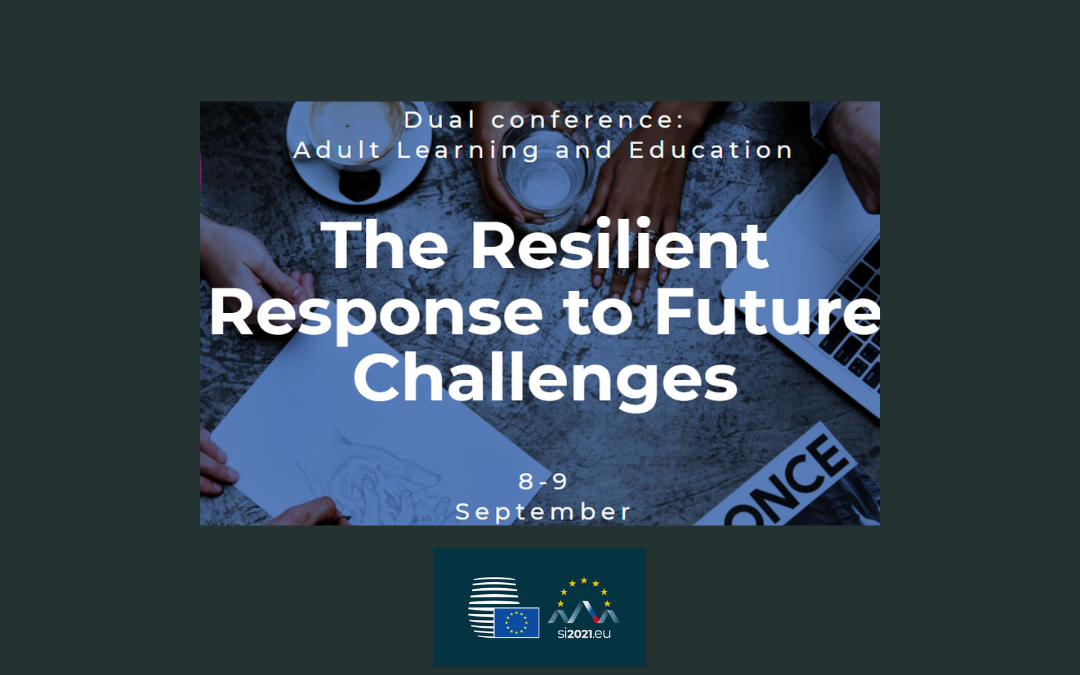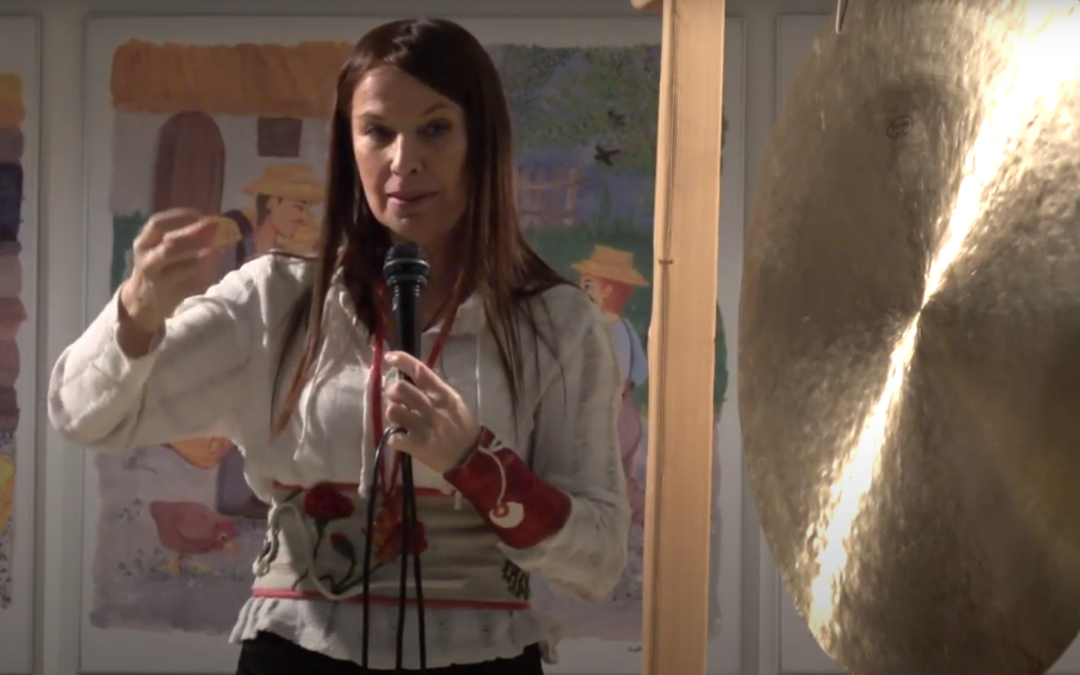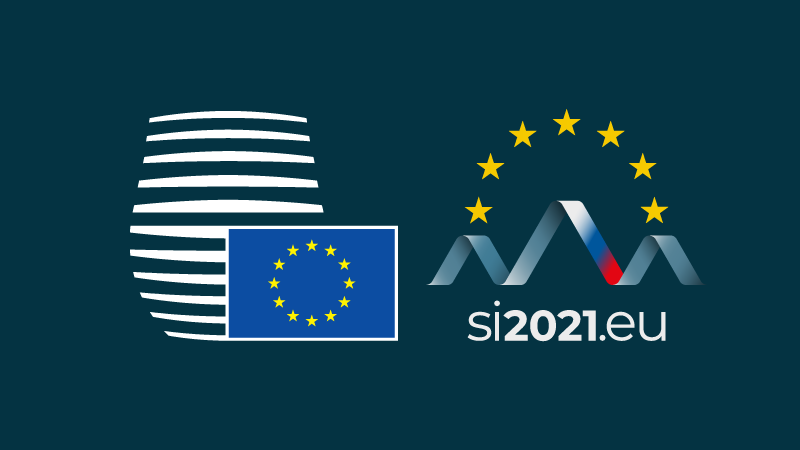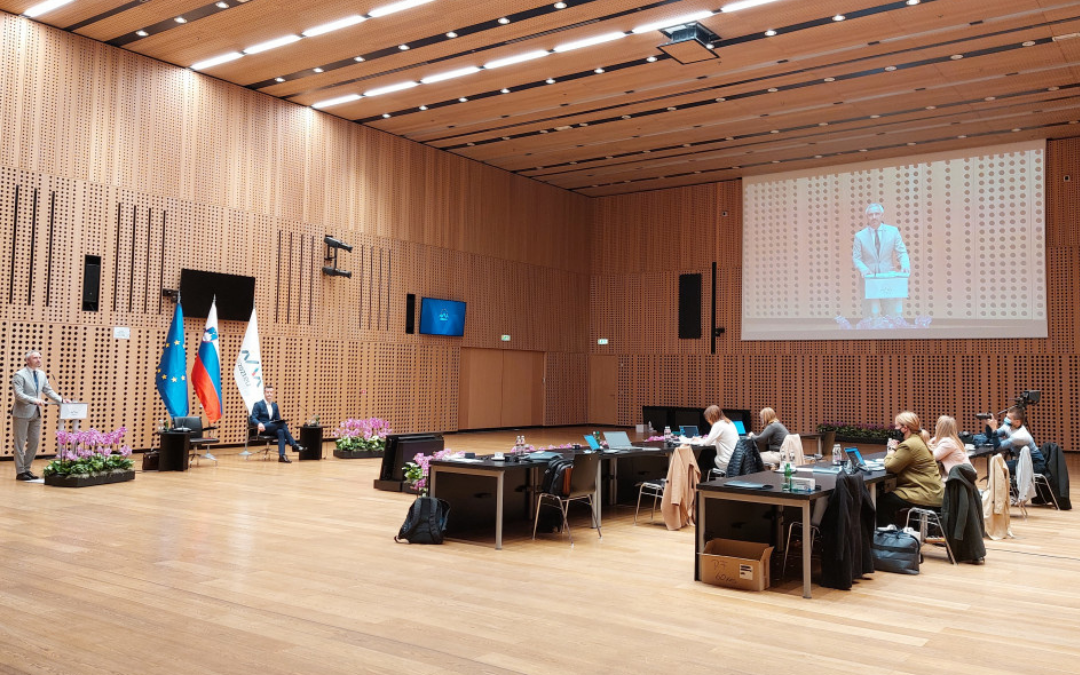We have already reported that one of the priorities of the Slovenian Presidency of the EU Council 2021 is ALE. Since last December, the working group at MESS, including some SIAE representatives, has been devoting their time to these activities. A good part of the efforts was dedicated to preparing for the conference, which we write about below. The challenges of the ALE in the next decade were also indirectly addressed at two other events of the Slovenian Presidency.
Dual-purpose European meeting on ALE
To implement a two-day European conference on ALE entitled Adult Learning and Education – The Resilient Response to Future Challenges, we joined forces with UNESCO and UIL.
The events of the first day, 8 September, focused on speeches, presentations and discussions on contemporary ALE topics: skills for future life and work, the twin transition (green and digital), demography (healthy and active ageing and migrations) and awareness-raising, guidance and outreach activities in ALE. High representatives of Slovenian and European education policy and UNESCO and representatives of domestic and international professions participated in the event. The so-called ALE ambassadors played a more prominent role. A new Eurydice study on ALE entitled Adult education and training in Europe. Building inclusive pathways to skills and qualifications in Europe was presented for the first time. From the point of view of the European Commission and Slovenia, the importance of the EPALE platform was shown. We are particularly proud of the video showing the story of ten years of implementation of the EAAL (project) in Slovenia.
At the beginning of the second day, 9 September, the concluding findings of the four working groups were presented, which were later recast into the ALE Declaration. Most of the time and attention was subsequently devoted to the European Regional Preparatory Conference for the International Conference on ALE (CONFINTEA VII 2022 in Morocco). Participants discussed the overall status and challenges of ALE and focused on digital innovation, forward-looking strategies and achieving the 2030 Agenda for Sustainable Development. European recommendations for CONFINTEA VII have been adopted and will be published here shortly.
Presentations and other materials, of which the performance of Ljoba Jenče is especially worth mentioning, are published here. A draft of the ALE Declaration mentioned above is also available on the conference subpage. The declaration addresses eight key areas. Participants commit to taking action and announce advocacy and other activities.
- Awareness-raising, guidance and outreach activities
- Inclusion and democracy
- Knowledge and skills for life and work
- Green and digital transition
- Governance and partnership
- Quality and professional development in ALE
- Funding and sustainable systems
- International cooperation and mobility
The declaration complements the upcoming NEAAL and the already existing Exploratory opinion by the EESC, which they prepared at the request of the Slovenian Presidency of the Council of the EU. In this way, a thorough consideration of ALE has been made from the professionals’, policymakers’ and social partners’ points of view. National and international strategies and guidelines are also taken into account.
Directors-General for VET met
The event took place online on 4 and 5 October and was also hosted by the Slovenian Presidency of the Council of the EU. The subject of the discussion was, of course, VET, however in close connection with ALE – both together are supposed to provide greater agility for work and life in general.
The Council Recommendation on VET for sustainable competitiveness, social fairness and resilience and Osnabrück Declaration guide the field of VET. Both strategies dictate the need for VET reforms, emphasising continuing lifelong learning, adequate investment in people, digitisation and sustainability principles. As evidenced by the developments in the last of the four working groups entitled Adult learning as a resilient response to future challenges, an alliance with VET is indispensable in all of this. Author of this article was the moderator of the group and Ema Perme from MESS (presentation of the preparations for the new EAAL), Antonio Ranieri from CEDEFOP (on skills for life and work) as well as a representative of the Italian and European trade union confederation Francesco Lauria (on the characteristics of continuing training during the pandemic) were the speakers.
In the discussion, which followed excellent presentations, we focused on approaches that could increase adult participation in learning, flexible ways of offering ALE and VET, on-the-job training and implementation of all aspects of the Council Recommendation Upskilling Pathways – new opportunities for adults. The conclusions were drawn up by Klara Engels-Perenyi, the new European Commission staff member responsible for ALE. Our vision is that they will be included in the further work of the relevant directorates and their sectors in all European countries.
High-Level Conference: Quality work for the quality of life
The third meeting, which also focused on ALE, or rather on lifelong learning, was organised by the MLFSA on 7 October, the World day for decent work. Minister Janez Cigler Kralj wished the participants a ‘day full of new knowledge’. He emphasised that investing in lifelong learning, health, good working conditions that will enable people to stay active for longer, care for the elderly and, on the other hand, for the young people is necessary – from the individual’s, the employer’s and society’s point of view.
Other speakers from trade unions and other social partners, the European Commission, the OECD, CEDEFOP and related stakeholders also addressed these topics. They all emphasised the relevance of ‘quality work for the quality life’ (and vice versa). Furthermore, they pointed out that ensuring health and protection for a fair transition (green, digital and others) is necessary. According to the German representative, this means eliminating the psychological strain, which is particularly severe due to the pandemic, providing new flexibility and security, mobile and technology-supported ways of working and strategies for acquiring qualifications and skills. Raising awareness of all these needs and actions is also crucial.
They advocated the reform of work and education systems that put people first and ensure they are served by technology (and not the other way around). Work-life balance, decent, sustainable and flexible work that is well paid – these were the appeals of most speakers. They were also supported by Andrej Zorko, the Slovenian representative in the EESC. He presented their Exploratory opinion, prepared for the purposes of the Slovenian presidency. In it, the Committee welcomes projects for economic and social recovery but at the same time calls for a permanent fund to eradicate poverty.
In the part of the conference dedicated to skilled work for a quality life, the OECD representative spoke about the knowledge and skills for the future. He pointed out that the needs of the labour market are changing rapidly, so the requirements for training are deepening and expanding; however, there are significant differences between the world’s regions. He is also in favour of the reform of ALE systems; however, he believes they are very complex and require the coordination of many stakeholders.
ALE also gained recognition thanks to the three events mentioned above. However, it also became evident that synergies are needed based on mutual respect and a shared commitment to defying problems and strengthening new work and education ethics.
The NEAAL is being finalised
The process has been running for a long time in parallel with the preparation and implementation of the events of the Slovenian Presidency of the Council of the EU, namely the harmonisation of Member States’ opinions on the draft of the NEAAL, and is now slowly ending. At the last meeting of the Education Committee, on 4 October, a few minor remarks were made, mainly concerning the issue of objectives and indicators. The representatives of the countries thanked the Slovenian Presidency for all its efforts made so far and expressed support for the document. Meanwhile, the Council of Ministers of Education adopted the Resolution on November 2021. Thus, the NEAAL is a political and professional background for continuing the implementation (in Slovenia of the EAAL project) until 2030.
Zvonka Pangerc Pahernik, MSc (zvonka.pangerc@acs.si), SIAE





